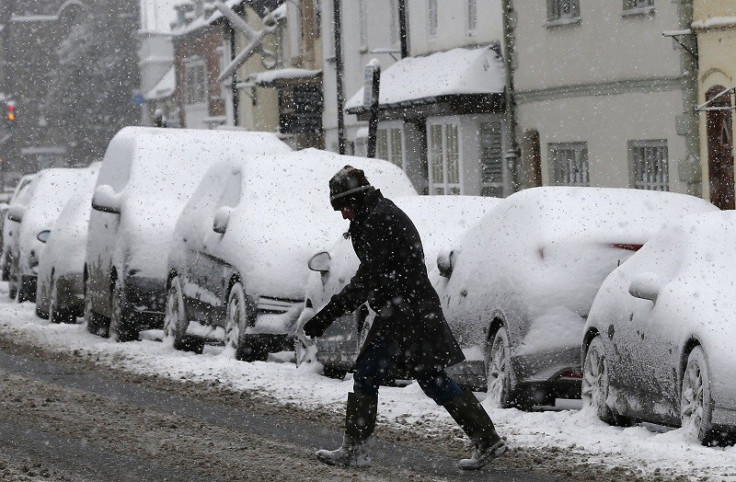25,000 Elderly Winter Deaths Adds Pressure on Cameron

England and Wales have seen a steep rise in "excess" winter deaths compared to the previous year, according to official figures.
The Office for National Statistics found an estimated 31,100 winter deaths occurred in 2012/13 - representing a 29% increase compared with the previous winter. More than 25,000 of those deaths were among the over-75s.
The research also revealed there were more deaths linked to cold weather among women. Between 2011/12 and 2012/13, the ONS said male excess winter deaths increased from 10,590 to 13,100, and female deaths from 13,610 to 18,000.
The majority of deaths occurred among those aged 75 and over; there were 25,600 winter deaths in this age group in 2012/13 compared with 5,500 in people under 75.
The deaths are caused by a surge in seasonal cold-related illnesses such as influenza and bronchitis.
Energy Price Protests
Protest groups including UK Uncut claim there is a link between the increased winter mortality to a rise in energy prices.
Politically, a harsh 2013/14 winter resulting in another high death toll, as well as increased pressure on the embattled NHS, will be exploited by the Labour party opposition as proof of the coalition's impotence in the face of the big six energy companies control of the UK energy market.
Opposition Leader Ed Miliband has tapped into public concerns over energy costs by promising a cap on bills if elected in 2015.
UK Uncut and Fuel Poverty Action are to demonstrate against energy providers Npower and British Gas over the tariff hikes.
UK Uncut said more than 1,000 demonstrators are expected to take part in the protests in London.
The anti-austerity groups plan to march on Npower offices with a coffin filled with bills and hold a "speak-out", where those hardest hit by "fuel poverty" will speak of their experiences.
In addition, protests will be taking place in Oxford at the new British Gas headquarters as well as Lewes and Bristol.
"The fact that people are dying of fuel poverty as Npower and other energy companies rake in the money is a scandal," said Susan Jarrett, a UK Uncut activist.
But a spokesperson for Npower said: "Energy companies are part of the solution, not part of the problem.
"Although energy suppliers like Npower only control around 16% of the total cost in people's energy bills, we employ more than 100 people whose sole job is to provide support to our most vulnerable customers and deliver real savings through energy efficiency."
© Copyright IBTimes 2024. All rights reserved.









